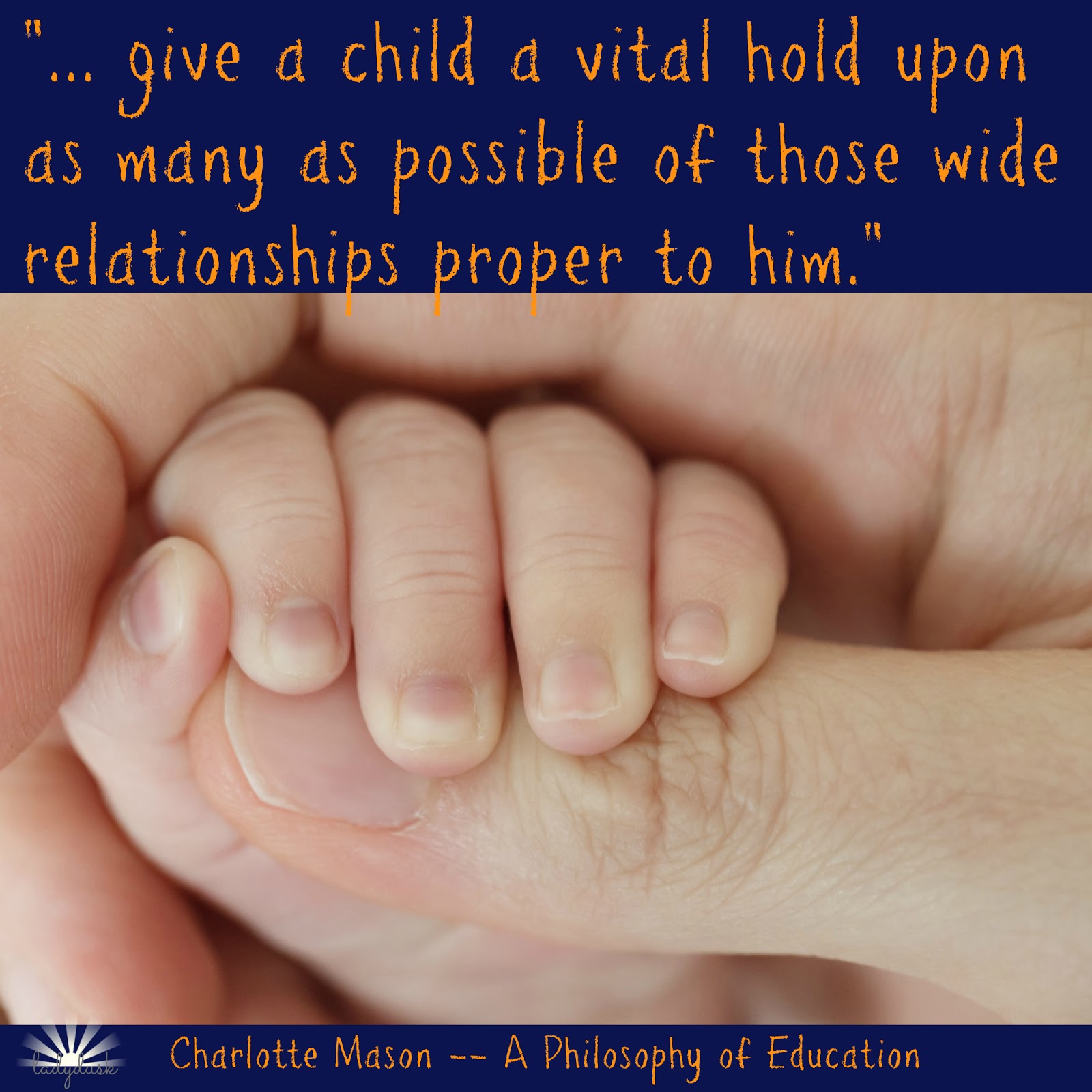Wednesdays with Words: Vital Hold

You know how sometimes when you start considering an ideas, it starts to show up in all sorts of places.
In devising a SYLLABUS for a normal child, of whatever social class, three points must be considered:
(a) He requires much knowledge, for the mind needs sufficient food as much as does the body.
(b) The knowledge should be various, for sameness in mental diet does not create appetite (i.e., curiosity)
(c) Knowledge should be communicated in well-chosen language, because his attention responds naturally to what is conveyed in literary form.
Not very STEM-y. Mason goes on to divide the kinds of knowledge into Knowledge of God, Knowledge of Man, and Knowledge of the Universe.
She argues for a general, non-utilitarian, overarching knowledge.
We labour under the mistake of supposing that there is no natural law or inherent principle according to which a child’s course of studies should be regulated; so we teach him those things which, according to Locke, it is becoming for a ‘gentelman’ to know on the one hand, and, on the other, the arts of reading, writing and summing, that he may not grow up an illiterate citizen. In both cases the education we offer is too utilitarian,–an indirect training for the professions or for a craftsman’s calling with efforts in the latter case to make a boy’s education bear directly on his future work. (Mason, Vol 6, pg 156, emphasis mine)
By setting a minimum knowledge base and educational course of study, we become utilitarian in our thinking … we limit a child to knowing that which is known about certain endeavors, but we don’t allow them to flourish with a vast array of knowledge which is enjoyable for its own sake.
In For The Children’s Sake, Susan Schaeffer Macaulay argues:
Art, mathematics, and so on–all are part of the whole life, reality. We can and should appreciate, execute, and learn about art, music, literature, history, math, science, philosophy, and so on–for their own sakes.
Often climbers are asked, “Why do you climb Mount Everest?” The answer comes quickly, “Because it is there.” In the same way, the inquiry “hy do you study, or do math, art, etc.?” should be swiftly answered by “Because it is part of the whole which God has created.” (Macaulay, For the Children’s Sake, pg 99-100, emphasis hers)
So, in educating our children, in bringing them up in paideia, in the search for truth, goodness, and beauty
The days have gone by when the education befitting either a gentleman or an artisan was our aim. Now we must deal with a child of man, who has a natural desire to know the history of his race and of his nation, what men thought in the past and are thinking now; the best thoughts of the best minds taking form as literature, and at its highest as poetry, or, as poetry rendered in the plastic forms of art: as a child of God, whose supreme desire and glory it is to know about and to know his almighty Father: as a person of many parts and passions who must know how to use, care for, and discipline himself, body, mind and soul: as a person of many relationships,–to family, city, church, state, neighbouring states, the world at large: as the inhabitant of a world full of beauty and interest, the features off which he must recognize and know how to name, and a world too, and a universe, whose every function of every part is ordered by laws which he must begin to know. (Mason, Vol 6, pg 157)
This is no small task, this educating children! She details so many relationships above: relationships we have and relationships our children must gain. Relationships with nouns – persons, places, things, and ideas.
It is a wide programme founded on the educational rights of man; wide, but we may not say it is impossible nor may we pick and choose and educate him in this direction but not in that. We may not even make choice between science and the ‘humanitites.’ Our part it seems to me is to give a child a vital hold upon as many as possible of those wide relationships proper to him. Shelley offers us the key to education when he speaks of “understanding that grows bright gazing on many truths.” (Mason, Vol 6, still 157, emphasis mine)

So, Mason seems right to me: a general education, a feast of ideas, a vital hold on relationships is necessary for even a student focused on mastering a specialized arena of thought.
I loved the term “vital hold.” A living, clasping, ownership of relationships with ideas. That’s what I want to give my children.
‘);

STEAM! Hadn't heard of that one – hot air…great thoughts here, Dawn.
Carol! I hadn't even made that connection. Hi-larious!
Loved this, Dawn. My children need a relationship with nouns! Great phrase.
Thanks 🙂
Very well stated. Thank you for sharing.
[mwah]